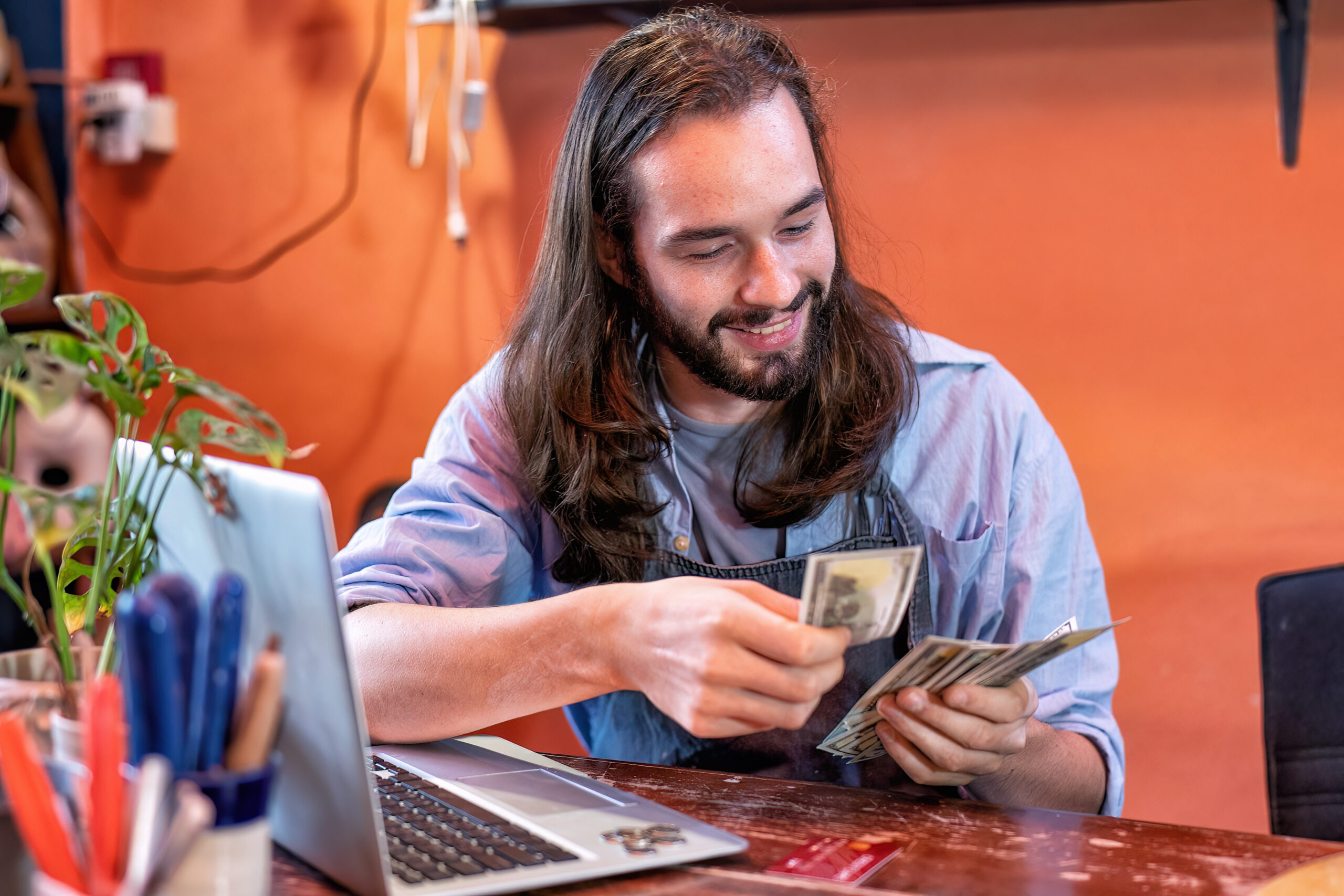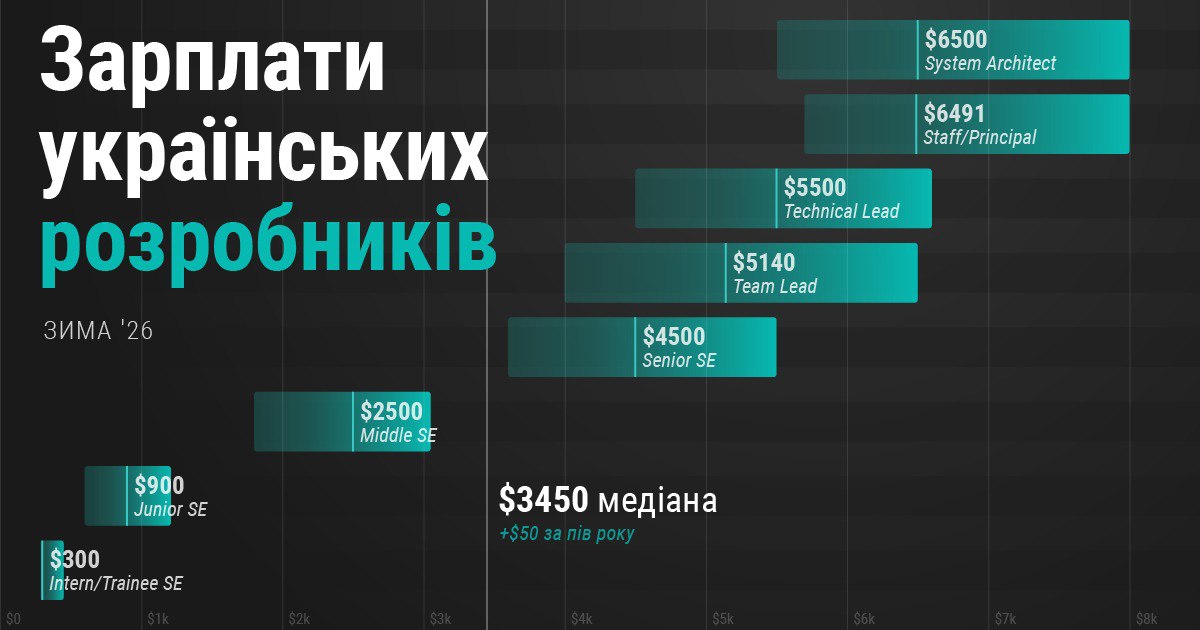Dnipro VC Closes 18 Deals Backing Ukrainian Founders Worldwide
Over the past six months, the young venture firm Dnipro VC has been making headlines. It participated in Liki24’s $9 million round, previously joined a $5.4 million deal with PeopleForce, invested in Crosscheck’s pre-seed round this May, and just two weeks ago announced funding for SpendBase. And those are only the public deals.
The name Dnipro VC speaks for itself: the firm invests exclusively in startups founded or co-founded by Ukrainians, though it’s headquartered in California.
We sat down with co-founders and partners Nick Bilogorskiy and Marianna Bonechi to talk about why they created Dnipro VC, how they choose startups, and what founders should know before pitching them.
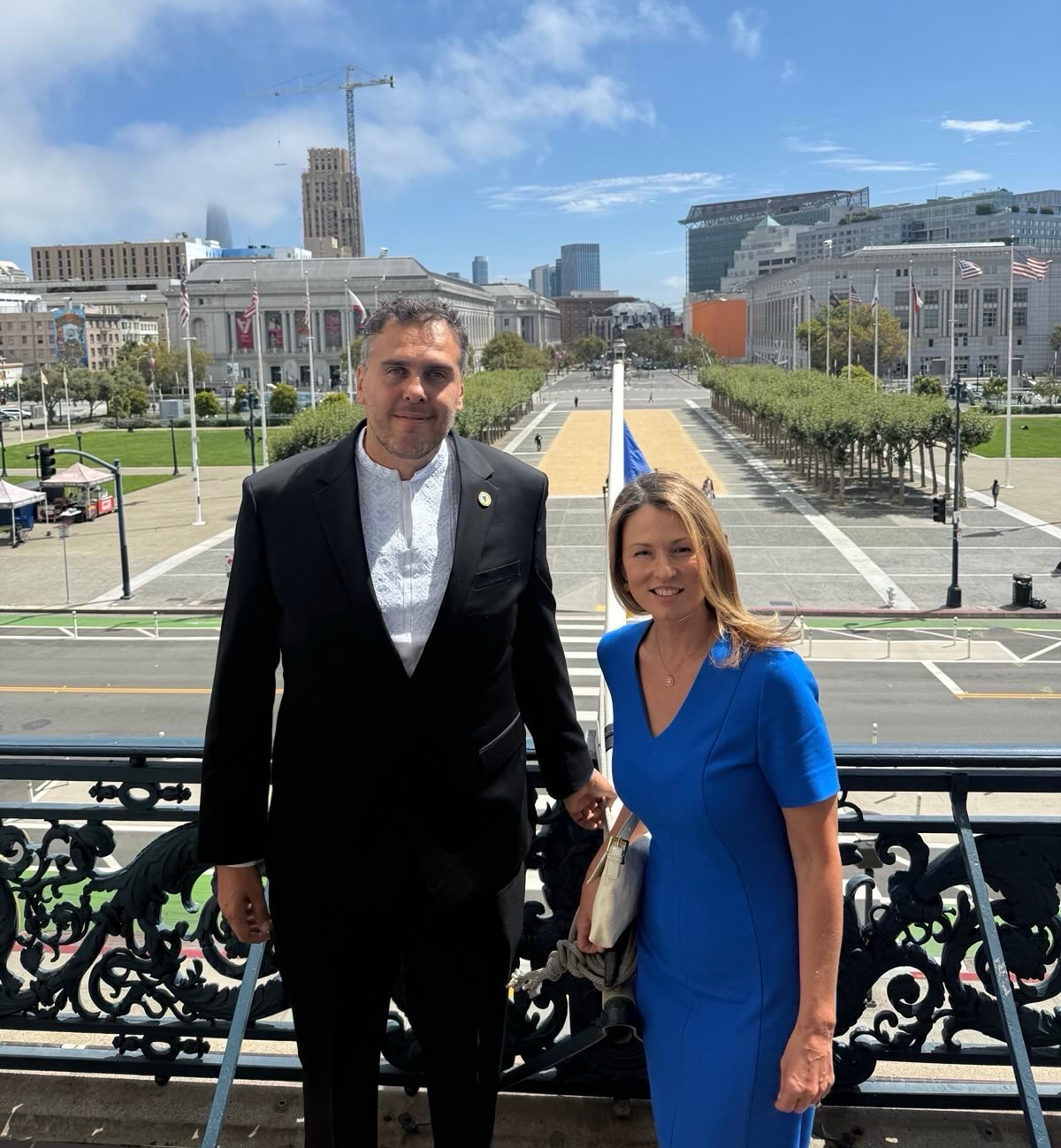
Tell us how and when you founded Dnipro VC and for what purpose.
Nick: Marianna and I have been friends for a long time and have experience investing in startups separately and together. In California, I helped Ukrainian CEOs through UA50.org, then launched the Ukrainian Startup Pavilion at StartupGrind and TechCrunch Disrupt. I also mentored Ukrainian founders and built the community step by step.
Marianna: Dnipro VC is the result of more than a decade of initiatives aimed at supporting Ukrainian founders, which eventually grew into a full-fledged venture firm.
My first work with Ukrainian startups began in 2016, when I teamed up with SaaS founders to build a community that helped Ukrainian Series A+ companies scale in the US.
By coincidence, Endeavor was my office neighbor. Conversations with Allen Taylor about scaling resonated with the exact challenges Ukrainian founders faced, so I approached him about launching Endeavor in Ukraine. After years of persuasion, I’m delighted to see the impact Endeavor is now making there.
In 2018, I also launched a global AI initiative with the Austrian diplomatic mission in San Francisco, bringing together EU commissioners, diplomats, tech executives, and, most importantly, AI-native founders. That gave me early access to outstanding talent and innovation in AI. The same year, friends from Stanford invited me to Kyiv, and I was impressed to see local founders moving at the same pace as Silicon Valley, building companies in AI voice, image, and text technologies.
I started angel investing in Ukrainian AI-native startups and launched my first fund, Slava Ventures, in 2022 to support them. My goal was to signal to Silicon Valley investors that backing Ukrainian founders was worth it even during wartime.
Eventually, all these initiatives merged into Dnipro VC. Slava Ventures was doing well, but I realized I wanted to make the story bigger.
Nick and I decided to combine everything: his technical background, my investment banking/M&A experience, and create something more powerful together.
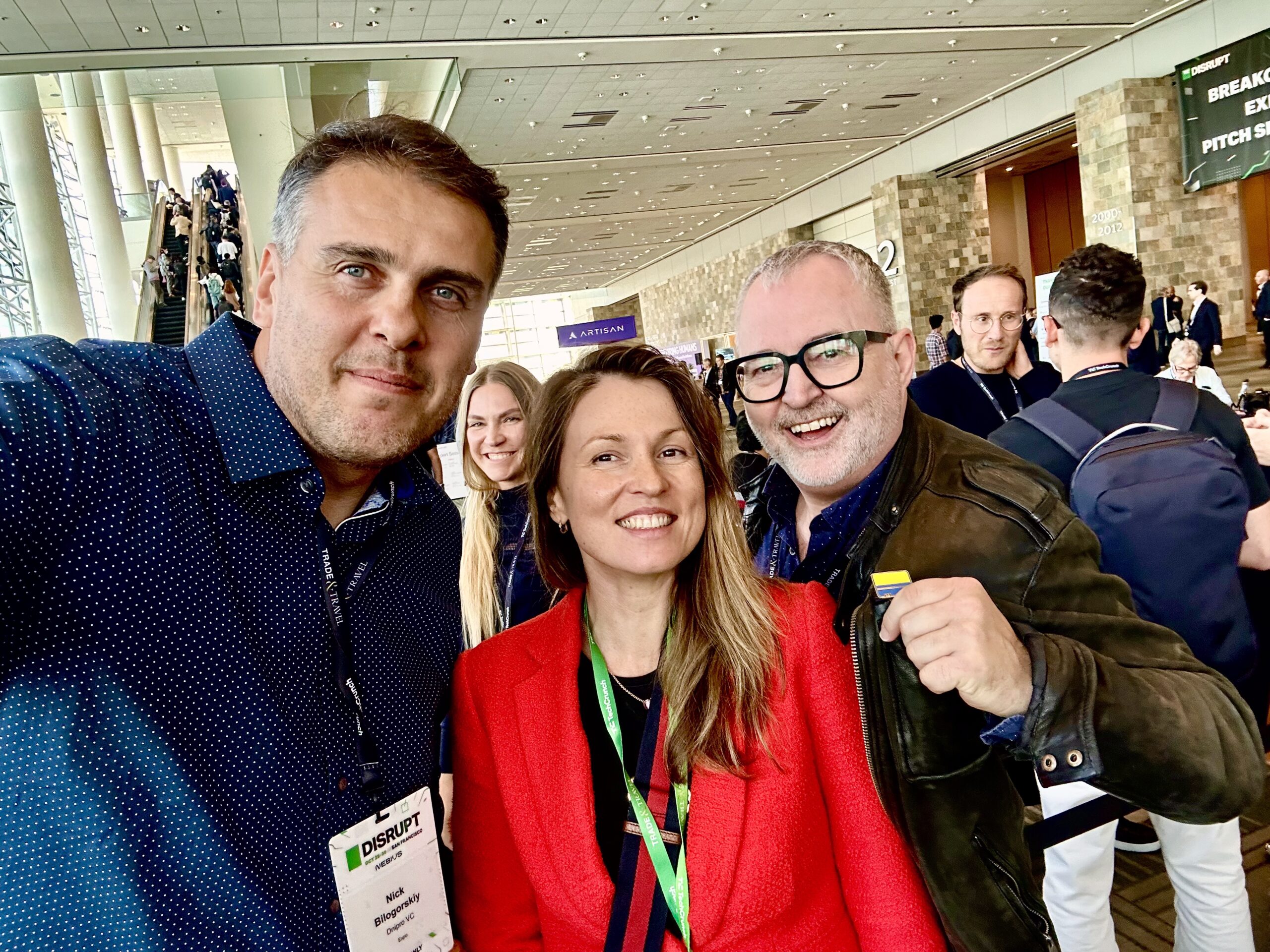
Nick: In 2024, we founded Dnipro VC, which focuses on the AI and cybersecurity industries, where I’ve spent nearly 20 years.
Marianna and I complement each other well. We’re both Ukrainian — I’m from Kharkiv, and she’s from Kalush — so our team represents both the east and west. I emigrated in 1996, studied in Canada, and moved to the US about 15 years ago.
Do you back only Ukrainian-led startups, or is there room in your portfolio for international teams as well?
Marianna: Our mission is to back Ukrainian companies with global ambitions. If they’re in Ukraine, we’ll support them there. If they’re in America, then in America. It’s a global story, but the focus remains Ukrainian.
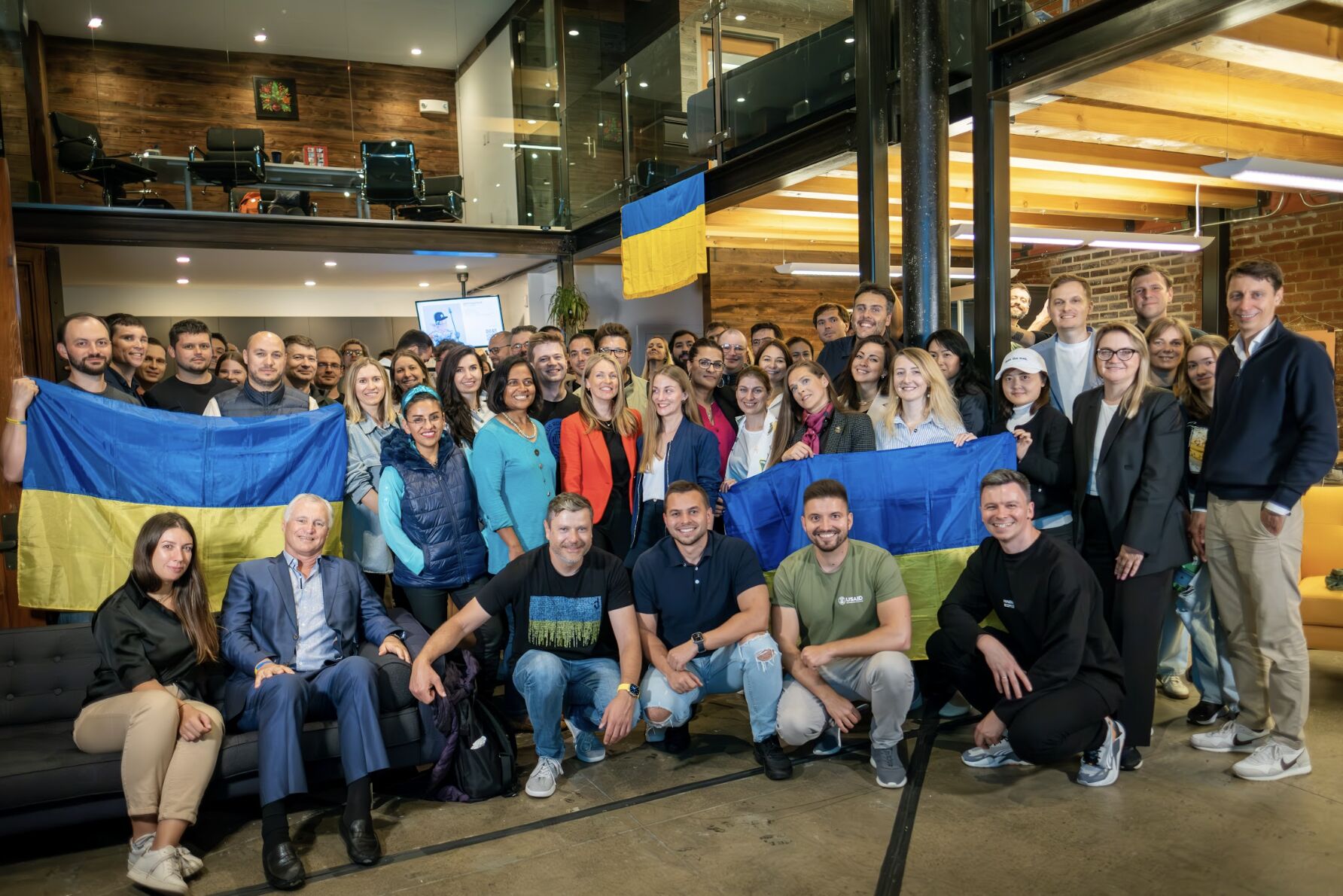
How many startups are in your portfolio now, and what’s your target?
Nick: We’ve already closed 18 investments. That’s roughly one or two deals per month.
Marianna: Overall, we plan to back 25 to 35 startups per year.
What’s your average ticket size?
Marianna: Between $250,000 and $1 million per deal.
What kinds of startups are you most focused on right now? Which verticals or niches are at the core of your investment strategy?
Marianna: In AI, we’re generalists. We look at companies applying AI to real business problems. For example, BuildCheck AI, born at Stanford, uses AI in construction to identify design errors that cause delays and extra costs.
While working on the global AI initiative, I realized how crucial data defensibility moats are for AI startups. Another example from our portfolio is Revalia Bio, a Yale University spin-off. The company ‘revives’ organs and tests drugs on them. Having access to such unique datasets gives them a strong defensibility moat and the potential to become a global leader.
Nick: We’re also interested in marketplaces — for example, we’ve invested in FieldComplete and Liki24. Generally, if there’s AI in a B2B solution, we’ll look at it.
And of course, cybersecurity. It’s critical for AI development to ensure model integrity and enable responsible AI that respects privacy, fairness, and ethics.
Dnipro VC is still a young firm, so it hasn’t had any exits yet. But can you tell us about the exits you’ve had in the past?
Marianna: Between the two of us, we’ve invested in about 60 companies. We’ve had 16 exits, including four unicorns.
Do you currently have any Ukrainian startups in the pipeline?
Marianna: Actually, our deal flow is crazy right now, so Nick and I haven’t really focused on publicity. Most startups come to us directly from founders who know us, or via referrals from our portfolio companies. We also see startups from universities, get some cold outreach, and even deals from other venture investors. It’s a really diverse and active pipeline
Nick: Yes, we’re doing due diligence on several Ukrainian startups. Can’t name them yet.
What stages do you invest in?
Marianna: Pre-seed, seed, and up to Series A.
Nick: My advice to founders is: don’t wait until you desperately need money. Build relationships with investors months in advance — ideally 3–6 months before you start raising.
Marianna: Exactly. We once met a founder in Palo Alto who told us, «We only have enough money until the end of the week.» That’s not the way to do it.
How quickly do you usually decide?
Nick: We’re fast. Not years or months, but days or weeks.
Investors all have different strategies for choosing which startups to invest in and which to pass over. For Dnipro VC, what are the key criteria you look at when deciding whether to back a founder or a company?
Marianna: I think it all comes down to the founders. Are they the team that can turn their company into a unicorn? Great founders know exactly what they’re building, understand the market they’re operating in, and have a clear plan for the milestones they need to reach to achieve their goals.
Nick: For me, it’s about trust. We need to believe these are the best people for the job.
Why such a strong emphasis on founders, and how are Ukrainians different?
Marianna: Ukrainian founders combine world-class technical skills, a willingness to take risks, and the ability to work at incredible speed.
Nick: I have a framework I call the «Three Vs»: vertical, velocity, and valuation.
- The first V is vertical: the industries I believe in. For example, B2B (but not crypto), or AI (but not hardware). These are areas I understand, have experience in, and a network where I can help founders with more than just money.
- The second V is velocity — speed and execution. When founders come to me, they’ve usually already built a product, signed their first customers, respond quickly, keep their promises, and have the energy to really get things done. All of this can be measured in numbers.
- And finally, valuation. It’s important for us to invest at a valuation that is reasonable for the stage the company is at.
How hands-on are you with your portfolio companies?
Marianna: Very. We work with them every day, and sometimes, it feels like we’re co-founders 🙂 We help with US scaling, hiring top management, and building boards. Thanks to our networks, we can really move the needle.
We also co-invest with top Silicon Valley VCs whenever possible. Twice a year, we host an AI summit — past guests include Sorenson Capital and General Catalyst — giving our portfolio companies direct access to major investors and partners.
Nick: And we even support founders we haven’t invested in yet, if we believe in them.
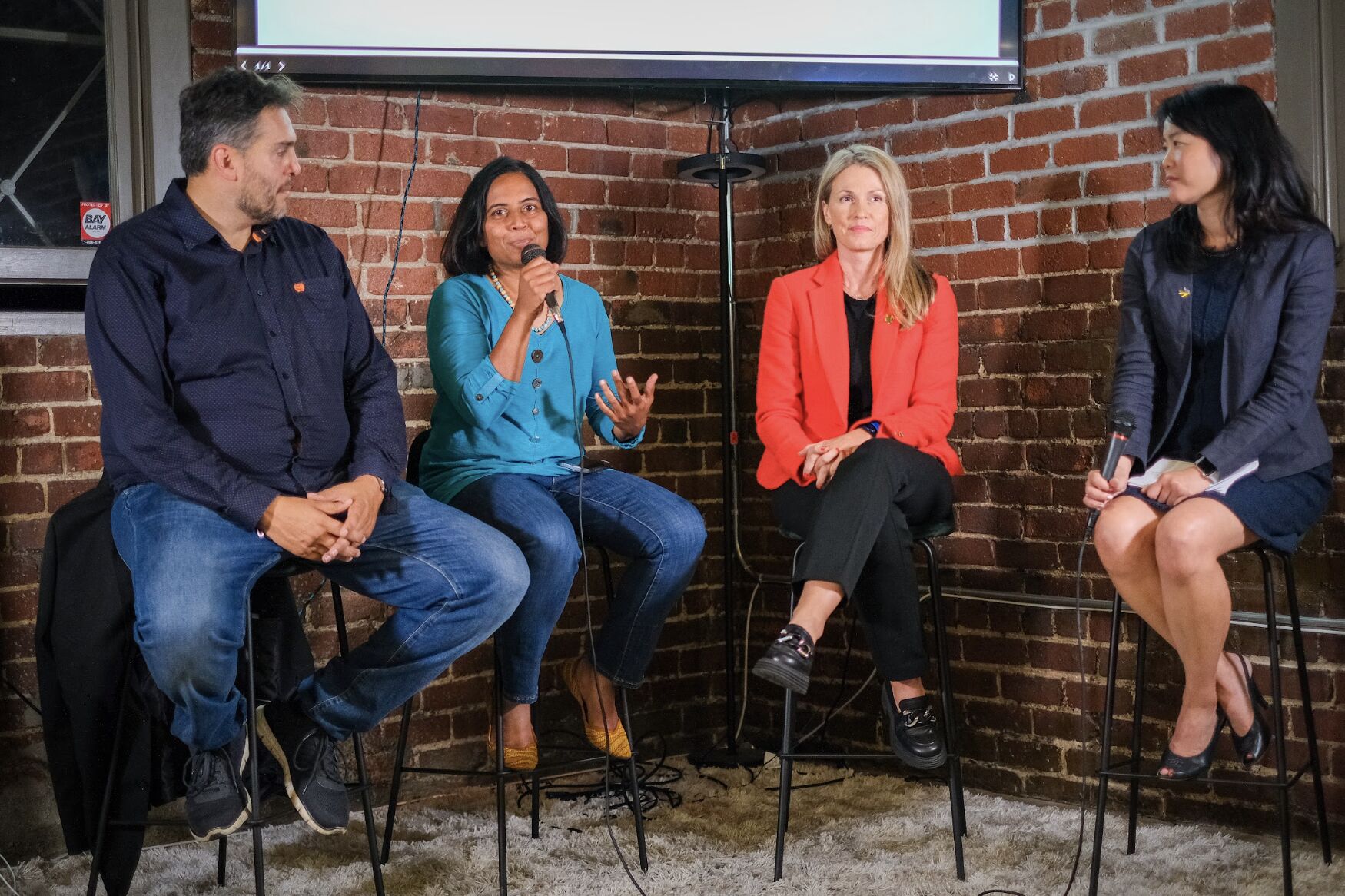
Let’s imagine I’m a startup founder. How can I get your attention?
Nick: Fundraising is sales. At Google, I learned: never cold-call. Don’t just send cold emails. The world is small and you can almost always find a warm intro through someone we know. That’s the best way to reach us.
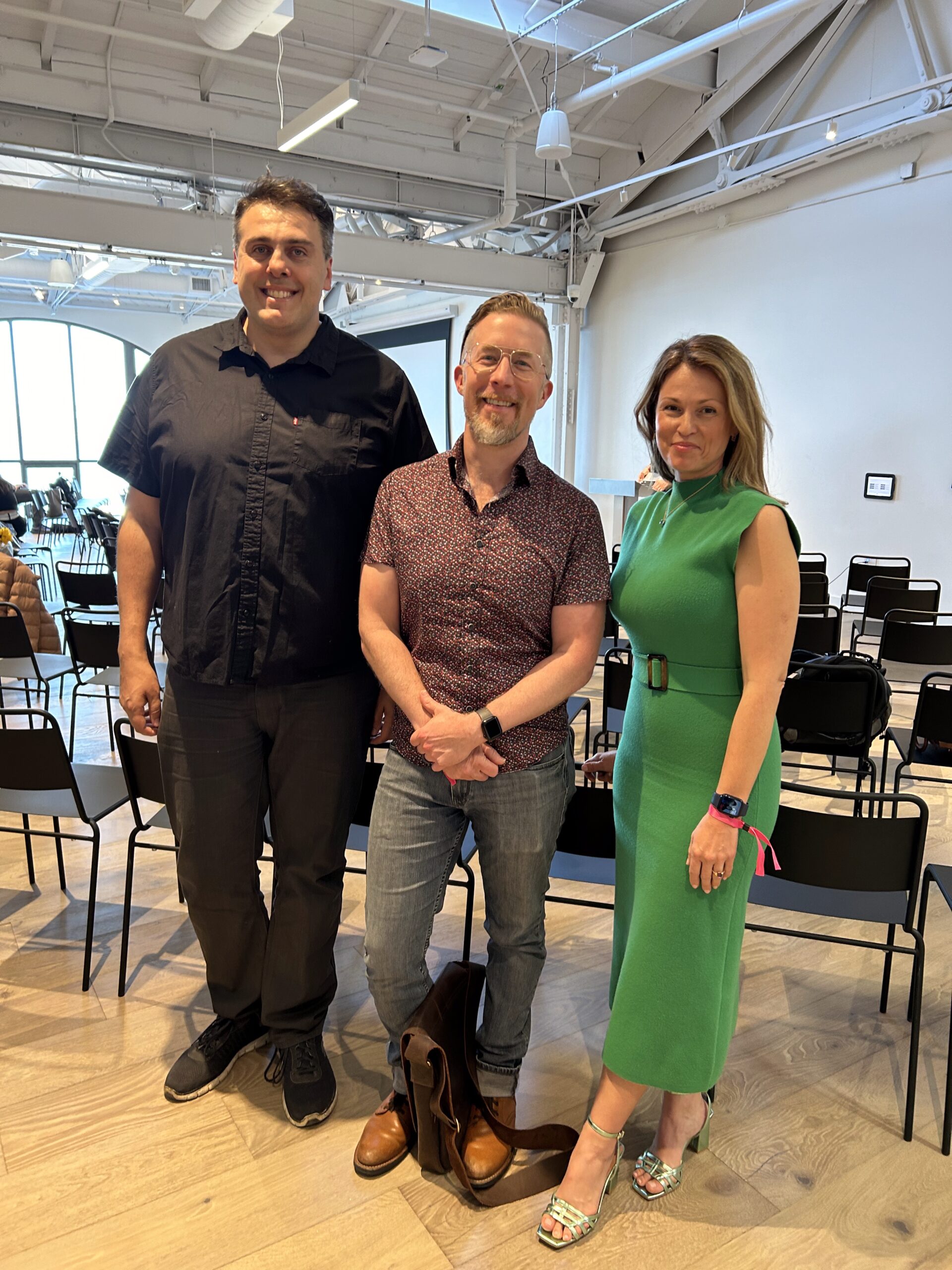
Have you ever invested in startups that reached out to you cold?
Marianna: We do review cold applications. But a trusted introduction moves things much faster.
What advice would you give Ukrainian founders raising capital during the war?
I think it’s important to pay attention to the unique competitive advantages that Ukrainian founders have right here in Ukraine. What needs exist in this market? Are there ideas that go beyond the solutions already out there?
The key is to find those inflection points that allow you to create technological products that don’t yet exist. I’m really looking forward to seeing founders who can do that. One classic example of such an inflection point is the GPS signal, which enabled companies like Uber, Bolt, and others to build entirely new business models around it.
I believe we’ll see equally unique ideas emerging from Ukraine — ideas specific to our ecosystem that could grow into amazing global companies in industries that don’t even exist yet.
Right now, for example, I see very rapid growth in the mental health space, with startups building around large and unique datasets. The demand for such products is clear. It’s possible that the next global giant will come from this niche.
Nick: Focus on building a real business, not just a startup. Forget conferences and press releases. Build the best product, get your first customers through your network, make them happy, and let them bring you more. Strong metrics will attract investors naturally.
I’m glad Ukraine now has unicorns — founders who’ve succeeded, made money, and are reinvesting. That’s how ecosystems grow: in Estonia, Israel, Silicon Valley, and now Ukraine.
When I first started angel investing, there were no Ukrainian-founded unicorns. Grammarly and GitLab were the pioneers. Now there are many more, and even more are on the way.
Dnipro VC Closes 18 Deals Backing Ukrainian Founders Worldwide
Over the past six months, the young venture firm Dnipro VC has been making headlines. It participated in Liki24’s $9 million round, previously joined a $5.4 million deal with PeopleForce, invested in Crosscheck’s pre-seed round this May, and just two weeks ago announced funding for SpendBase. And those are only the public deals.
The name Dnipro VC speaks for itself: the firm invests exclusively in startups founded or co-founded by Ukrainians, though it’s headquartered in California.
We sat down with co-founders and partners Nick Bilogorskiy and Marianna Bonechi to talk about why they created Dnipro VC, how they choose startups, and what founders should know before pitching them.

Tell us how and when you founded Dnipro VC and for what purpose.
Nick: Marianna and I have been friends for a long time and have experience investing in startups separately and together. In California, I helped Ukrainian CEOs through UA50.org, then launched the Ukrainian Startup Pavilion at StartupGrind and TechCrunch Disrupt. I also mentored Ukrainian founders and built the community step by step.
Marianna: Dnipro VC is the result of more than a decade of initiatives aimed at supporting Ukrainian founders, which eventually grew into a full-fledged venture firm.
My first work with Ukrainian startups began in 2016, when I teamed up with SaaS founders to build a community that helped Ukrainian Series A+ companies scale in the US.
By coincidence, Endeavor was my office neighbor. Conversations with Allen Taylor about scaling resonated with the exact challenges Ukrainian founders faced, so I approached him about launching Endeavor in Ukraine. After years of persuasion, I’m delighted to see the impact Endeavor is now making there.
In 2018, I also launched a global AI initiative with the Austrian diplomatic mission in San Francisco, bringing together EU commissioners, diplomats, tech executives, and, most importantly, AI-native founders. That gave me early access to outstanding talent and innovation in AI. The same year, friends from Stanford invited me to Kyiv, and I was impressed to see local founders moving at the same pace as Silicon Valley, building companies in AI voice, image, and text technologies.
I started angel investing in Ukrainian AI-native startups and launched my first fund, Slava Ventures, in 2022 to support them. My goal was to signal to Silicon Valley investors that backing Ukrainian founders was worth it even during wartime.
Eventually, all these initiatives merged into Dnipro VC. Slava Ventures was doing well, but I realized I wanted to make the story bigger.
Nick and I decided to combine everything: his technical background, my investment banking/M&A experience, and create something more powerful together.

Nick: In 2024, we founded Dnipro VC, which focuses on the AI and cybersecurity industries, where I’ve spent nearly 20 years.
Marianna and I complement each other well. We’re both Ukrainian — I’m from Kharkiv, and she’s from Kalush — so our team represents both the east and west. I emigrated in 1996, studied in Canada, and moved to the US about 15 years ago.
Do you back only Ukrainian-led startups, or is there room in your portfolio for international teams as well?
Marianna: Our mission is to back Ukrainian companies with global ambitions. If they’re in Ukraine, we’ll support them there. If they’re in America, then in America. It’s a global story, but the focus remains Ukrainian.

How many startups are in your portfolio now, and what’s your target?
Nick: We’ve already closed 18 investments. That’s roughly one or two deals per month.
Marianna: Overall, we plan to back 25 to 35 startups per year.
What’s your average ticket size?
Marianna: Between $250,000 and $1 million per deal.
What kinds of startups are you most focused on right now? Which verticals or niches are at the core of your investment strategy?
Marianna: In AI, we’re generalists. We look at companies applying AI to real business problems. For example, BuildCheck AI, born at Stanford, uses AI in construction to identify design errors that cause delays and extra costs.
While working on the global AI initiative, I realized how crucial data defensibility moats are for AI startups. Another example from our portfolio is Revalia Bio, a Yale University spin-off. The company ‘revives’ organs and tests drugs on them. Having access to such unique datasets gives them a strong defensibility moat and the potential to become a global leader.
Nick: We’re also interested in marketplaces — for example, we’ve invested in FieldComplete and Liki24. Generally, if there’s AI in a B2B solution, we’ll look at it.
And of course, cybersecurity. It’s critical for AI development to ensure model integrity and enable responsible AI that respects privacy, fairness, and ethics.
Dnipro VC is still a young firm, so it hasn’t had any exits yet. But can you tell us about the exits you’ve had in the past?
Marianna: Between the two of us, we’ve invested in about 60 companies. We’ve had 16 exits, including four unicorns.
Do you currently have any Ukrainian startups in the pipeline?
Marianna: Actually, our deal flow is crazy right now, so Nick and I haven’t really focused on publicity. Most startups come to us directly from founders who know us, or via referrals from our portfolio companies. We also see startups from universities, get some cold outreach, and even deals from other venture investors. It’s a really diverse and active pipeline
Nick: Yes, we’re doing due diligence on several Ukrainian startups. Can’t name them yet.
What stages do you invest in?
Marianna: Pre-seed, seed, and up to Series A.
Nick: My advice to founders is: don’t wait until you desperately need money. Build relationships with investors months in advance — ideally 3–6 months before you start raising.
Marianna: Exactly. We once met a founder in Palo Alto who told us, «We only have enough money until the end of the week.» That’s not the way to do it.
How quickly do you usually decide?
Nick: We’re fast. Not years or months, but days or weeks.
Investors all have different strategies for choosing which startups to invest in and which to pass over. For Dnipro VC, what are the key criteria you look at when deciding whether to back a founder or a company?
Marianna: I think it all comes down to the founders. Are they the team that can turn their company into a unicorn? Great founders know exactly what they’re building, understand the market they’re operating in, and have a clear plan for the milestones they need to reach to achieve their goals.
Nick: For me, it’s about trust. We need to believe these are the best people for the job.
Why such a strong emphasis on founders, and how are Ukrainians different?
Marianna: Ukrainian founders combine world-class technical skills, a willingness to take risks, and the ability to work at incredible speed.
Nick: I have a framework I call the «Three Vs»: vertical, velocity, and valuation.
- The first V is vertical: the industries I believe in. For example, B2B (but not crypto), or AI (but not hardware). These are areas I understand, have experience in, and a network where I can help founders with more than just money.
- The second V is velocity — speed and execution. When founders come to me, they’ve usually already built a product, signed their first customers, respond quickly, keep their promises, and have the energy to really get things done. All of this can be measured in numbers.
- And finally, valuation. It’s important for us to invest at a valuation that is reasonable for the stage the company is at.
How hands-on are you with your portfolio companies?
Marianna: Very. We work with them every day, and sometimes, it feels like we’re co-founders 🙂 We help with US scaling, hiring top management, and building boards. Thanks to our networks, we can really move the needle.
We also co-invest with top Silicon Valley VCs whenever possible. Twice a year, we host an AI summit — past guests include Sorenson Capital and General Catalyst — giving our portfolio companies direct access to major investors and partners.
Nick: And we even support founders we haven’t invested in yet, if we believe in them.

Let’s imagine I’m a startup founder. How can I get your attention?
Nick: Fundraising is sales. At Google, I learned: never cold-call. Don’t just send cold emails. The world is small and you can almost always find a warm intro through someone we know. That’s the best way to reach us.

Have you ever invested in startups that reached out to you cold?
Marianna: We do review cold applications. But a trusted introduction moves things much faster.
What advice would you give Ukrainian founders raising capital during the war?
I think it’s important to pay attention to the unique competitive advantages that Ukrainian founders have right here in Ukraine. What needs exist in this market? Are there ideas that go beyond the solutions already out there?
The key is to find those inflection points that allow you to create technological products that don’t yet exist. I’m really looking forward to seeing founders who can do that. One classic example of such an inflection point is the GPS signal, which enabled companies like Uber, Bolt, and others to build entirely new business models around it.
I believe we’ll see equally unique ideas emerging from Ukraine — ideas specific to our ecosystem that could grow into amazing global companies in industries that don’t even exist yet.
Right now, for example, I see very rapid growth in the mental health space, with startups building around large and unique datasets. The demand for such products is clear. It’s possible that the next global giant will come from this niche.
Nick: Focus on building a real business, not just a startup. Forget conferences and press releases. Build the best product, get your first customers through your network, make them happy, and let them bring you more. Strong metrics will attract investors naturally.
I’m glad Ukraine now has unicorns — founders who’ve succeeded, made money, and are reinvesting. That’s how ecosystems grow: in Estonia, Israel, Silicon Valley, and now Ukraine.
When I first started angel investing, there were no Ukrainian-founded unicorns. Grammarly and GitLab were the pioneers. Now there are many more, and even more are on the way.


